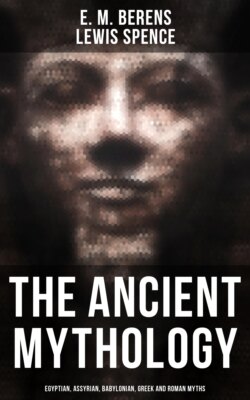Читать книгу The Ancient Mythology: Egyptian, Assyrian, Babylonian, Greek and Roman Myths - Lewis Spence - Страница 122
На сайте Литреса книга снята с продажи.
The Assyrian Bel and Belit
ОглавлениеAs for Bel, whose place Merodach usurped in the Babylonian pantheon, he was also recognized in Assyria, and Tiglath-pileser I built him a temple in his city of Asshur. Tiglath prefixes the adjective 'old' to the god's name to show that he means Bel, not Bel-Merodach. Sargon, too, who had antiquarian tastes, also reverts to Bel, to whom he alludes as the 'Great Mountain,' the name of the god following immediately after that of Asshur. Bel is also invoked in connexion with Anu as a granter of victory. His consort Belit, although occasionally she is coupled with him, more usually figures as the wife of Asshur, and almost as commonly as a variant of Ishtar. In a temple in the city of Asshur, Tiglath-pileser I made presents to Belit consisting of the images of the gods vanquished by him in his various campaigns. Assur-bani-pal, too, regarded Belit as the wife of Asshur, and himself as their son, alluding to Belit as 'Mother of the Great Gods,' a circumstance which would go to show that, like most of the Assyrian kings, his egoism rather overshadowed his sense of humour. In Assur-bani-pal's pantheon Belit is placed close by her consort Asshur. But there seems to have been a good deal of confusion between Belit and Ishtar because of the general meaning of the word Belit.
